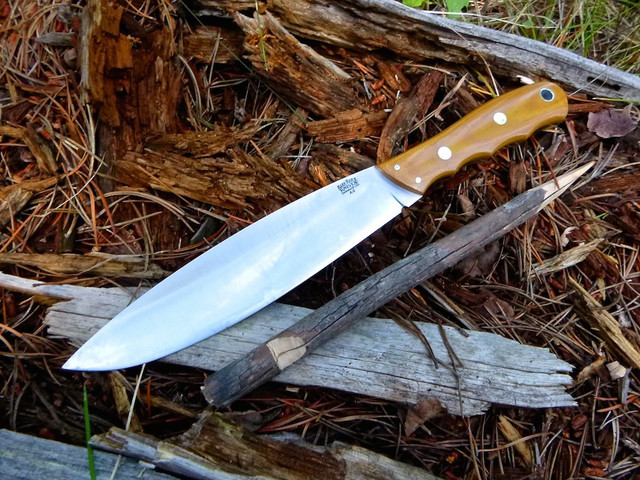shaving sharp
Gold Member
- Joined
- Dec 19, 2007
- Messages
- 3,033
The OP asked what tasks would you use a chopper for that you could not cover with a small fixed, hatchet, or machete. The answer is none of them because it can do whatever any of them can with having to carry just one tool/knife. It can handle the small tasks if the blade is under 10 inches and do the chopping/cutting tasks if needed. For me a heavy 1/4 thick plus 8 inch blade knife is the ideal outdoor blade. Drop me on a mountain top with a knife that size and I would feel better prepared than with a 5 inch bushcraft knife.
Last edited:












